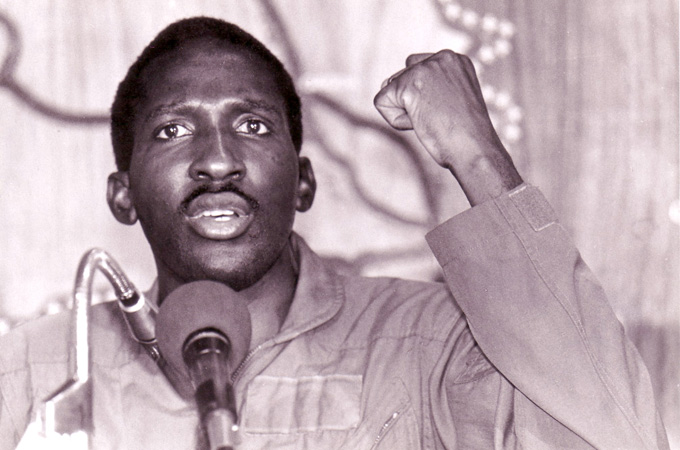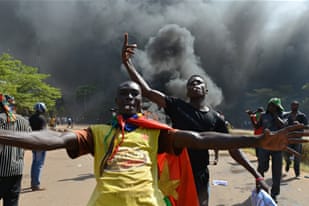The Berlin Wall fell 25 years ago, but Germany is still divided
BY RICK NOACK, THE WASHINGTON POST, OCTIBER 31
It can be hard for visitors to Berlin to imagine where the Berlin Wall once separated Germany's communist East from the U.S.-friendly West. Today, commuters run to catch a metro where trains stood for nearly 40 years. Curried sausages are sold and illegal (but popular) parties are celebrated in empty warehouses just feet from where East Germans were shot by their own countrymen as they tried to cross the border to the west.

Next week, Germany will celebrate the 25th anniversary of the fall of the Berlin Wall and at first glance, it seems as if the country is more united than some nations that were never split.
But numbers and images illustrating differences in lifestyles and problems between East and West Germans tell a different story. While 75 percent of Germans who live in the east said they considered their country's reunification a success in a recent survey only half of western Germans agreed. And that's not the only distinction indicating that the separation of the past prevails today.
Before we go in-depth with the Washington Post visualizations and maps, some of them inspired by German news site ZEIT ONLINE, let's take a look at the bigger picture:
Berlin, photographed from a Space Station
The photo above was taken by astronaut André Kuipers from the International Space Station in 2012. It shows one division of Berlin: While the yellow lights are in east Berlin, the green parts mark the western part.
Daniela Augenstein, a spokeswoman for Berlin's department of urban development, explained that each side historically used different streetlights. The lights themselves reflect another difference: The streetlamps used in West Germany were much more environmentally friendly, reflecting the emergence of the western German environmental civil movement in the 1970s and 1980s. At that time East Germany was still heavily polluting, and heavily reliant on coal. Today, eastern Germany is the heart of the country's renewable energy transformation. But viewed from space, the historic differences still define Berlin's nightly appearance.
Data reveal further cleavages between east and west.

(Source of the following 8 maps: German statistical office. Visualization: Gene Thorp/ The Washington Post)
After the fall of the Berlin Wall, formerly communist eastern German companies and factories suddenly had to compete with their much more efficient western counterparts. Capitalism came too fast. Many eastern German companies went bankrupt and some regions never recovered from the shock. Until today, income levels are much lower in the east than in the west.
Germany's unemployment rate made headlines when it hit a two-decade low this summer. But that rate is not evenly spread: former West German states still have far better employment levels than their eastern neighbors. That's in part because more young people have moved from rural eastern areas to the west, which has also decreased the amount of job-seeking eastern Germans.
This has led to a paradoxical situation: Many young people in rural eastern Germany say they are forced to move to the west or to larger eastern cities because of a lack of competitive wages and job opportunities. Consequently, many eastern German companies cannot find enough young trainees for entry-level positions and are now recruiting in Poland or the Czech Republic.
Demographic differences are not only the result of joblessness and income gaps. Most foreigners who live in Germany have chosen to settle in the western parts, and their arrival has decreased average ages. Several factors explain the significantly smaller foreign population in the east. Before the fall of the Berlin Wall, western Germany invited many Turks to live in the country as guest workers. Many of them never left.
Furthermore, the climate is less friendly to foreigners in the east, according to a study by Leipzig University researchers who interviewed 16,000 Germans over 10 years. These findings coincide with a larger presence of right-wing neo-Nazi sympathizers. The right-wing National Democratic Party, whose members have often been accused of glorifying Adolf Hitler, enjoys particular support in the east, though they've been relatively unsuccessful at the polls.
Why did right-wing politicians prosper in the once-communist east. The explanation is complex, but scientists often attribute it to a mixture of anti-leftist worldviews after the wall fell and the economic downturn in the east. Many people were disillusioned by Western capitalism, but few wanted a return to communism. Right-wing politicians were quick to fill the void. The great majority of eastern Germans, of course, are welcoming.
The comparisons above might make eastern Germany seem like a bleak place to live -- but in some ways, it's ahead of the west. Take trash production. Why? Having dealt with constant food shortages until 1989, eastern Germans learned to economize and buy only those items they deemed necessary. This attitude seems to prevail today.
Communist East Germany also emphasized child care. While eastern German mothers were usually employed, western German women often stayed home to raise their children. So the East German government invested heavily in child-care facilities, and that legacy remains today.
This map points to another legacy of eastern Germany's communist past. In then-East Germany, agricultural fields were much larger, because they were not owned by individuals, but by a pool of farmers. After reunification, the fields' sizes rarely changed.

(Source: Versorgungsatlas.de/ First used by ZEIT ONLINE/ Visualization: Gene Thorp, The Washington Post)
In the east, it was also much more common, and politically supported, to get a flu shot. Even today, eastern Germans are more committed to this practice, as the German news website ZEIT ONLINE recently noted in a comparison between eastern and western habits and beliefs that is definitely worth a read. (According to the site, eastern Germans also own significantly fewer legal small arms than citizens living in west Germany.)

(Source: Kraftfahrt-Bundesamt/ First used by ZEIT ONLINE/ Visualization: Gene Thorp, The Washington Post)
Finally, if you travel Europe and you see two German groups at a campground, you might easily be able to distinguish them. Eastern Germans usually sleep in tents, while western Germans prefer to travel with trailers. We did not find a scientific explanation, but one might posit that it's rooted in western Germans' longer experience traveling the world. Furthermore, many young eastern Germans couldn't even afford a car under communism. Trying to buy a trailer would have been more expensive and nearly impossible for most eastern Germans. While those in the west were able to explore beyond their borders, eastern Germans remained practically imprisoned by their government for nearly 40 years -- until 25 years ago.










